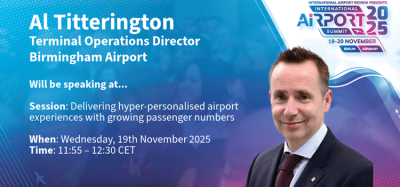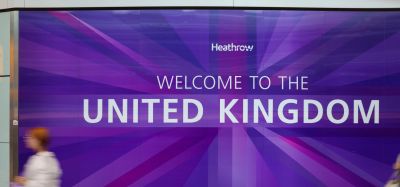Right to flight
- Like
- Digg
- Del
- Tumblr
- VKontakte
- Buffer
- Love This
- Odnoklassniki
- Meneame
- Blogger
- Amazon
- Yahoo Mail
- Gmail
- AOL
- Newsvine
- HackerNews
- Evernote
- MySpace
- Mail.ru
- Viadeo
- Line
- Comments
- Yummly
- SMS
- Viber
- Telegram
- Subscribe
- Skype
- Facebook Messenger
- Kakao
- LiveJournal
- Yammer
- Edgar
- Fintel
- Mix
- Instapaper
- Copy Link
Posted: 3 April 2007 | Anne Houtman, Director "General Affairs", Directorate-General Energy and Transport, European Commission | No comments yet
EU guarantees the rights of disabled people and persons with reduced mobility when travelling by air. The Single Aviation Market has brought Europeans important benefits, including a wider choice of destinations and carriers, as well as lower fares. It has opened air transport to a majority of citizens. Air travel is often indispensable for work, for visiting family and friends and for enjoying leisure and tourism. Poor access to air travel can thus severely impede integration, to the detriment of society as a whole. Consequently, people suffering from reduced mobility must have comparable opportunities for air travel, whether caused by disability, age or some other factor.
EU guarantees the rights of disabled people and persons with reduced mobility when travelling by air. The Single Aviation Market has brought Europeans important benefits, including a wider choice of destinations and carriers, as well as lower fares. It has opened air transport to a majority of citizens. Air travel is often indispensable for work, for visiting family and friends and for enjoying leisure and tourism. Poor access to air travel can thus severely impede integration, to the detriment of society as a whole. Consequently, people suffering from reduced mobility must have comparable opportunities for air travel, whether caused by disability, age or some other factor.
Against this background, the European Union adopted on 5th July 2006 Regulation 1107/2006 which gives disabled people and people with reduced mobility opportunities for air travel comparable to those enjoyed by other citizens when they fly out of Union airports. This European legislation gives them confidence that their needs will be met throughout the EU whatever airport or airline they use.
The new legislation is based on the principles of non-discrimination and assistance. Disabled persons and persons with reduced mobility must not be refused booking or embarkation due to their disability or reduced mobility. Derogations from this general rule are only possible to meet safety requirements established by law and if the aircraft or its doors make embarkation physically impossible. The airport managing body is responsible for providing the required assistance without additional charge to the beneficiaries of these measures. Airlines will provide on-board assistance.
Airport authorities play a central role in making these new rights a reality. They will have to work in close cooperation with airlines, airport user committees and organisations representing disabled persons and persons with reduced mobility to render assistance obligations operational. Time is short. Regulation 1107/2006 will apply with effect from 26th July 2008 to all EU airports, and substantial preparatory work still needs to be completed. During this transition period, the Commission will provide any informal guidance allowing for a smooth and efficient phasing-in of Regulation 1107/2006 in the daily life of airports.
As Mr Barrot, Vice-President of the Commission in charge of transport said, “We must give people with reduced mobility the same chances in life as others, and that includes travel”. Beyond the new business opportunities for airports in attracting customers who previously did not fly, airports also have a unique opportunity to contribute to the integration of persons with reduced mobility into European society. I have no doubt that they will seize it!


















